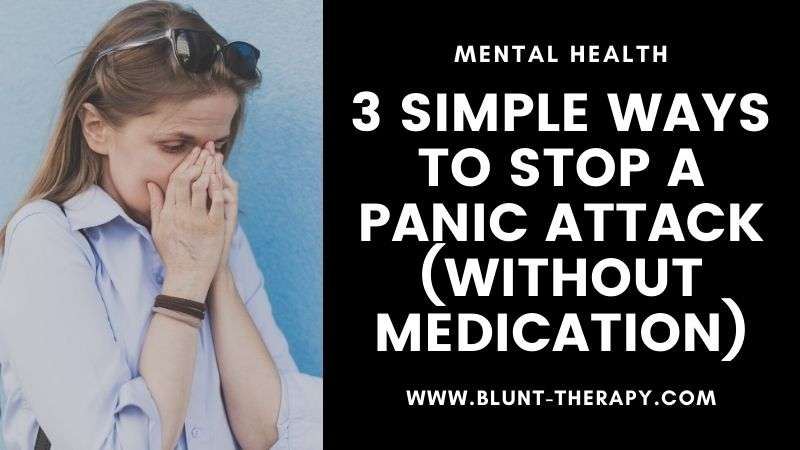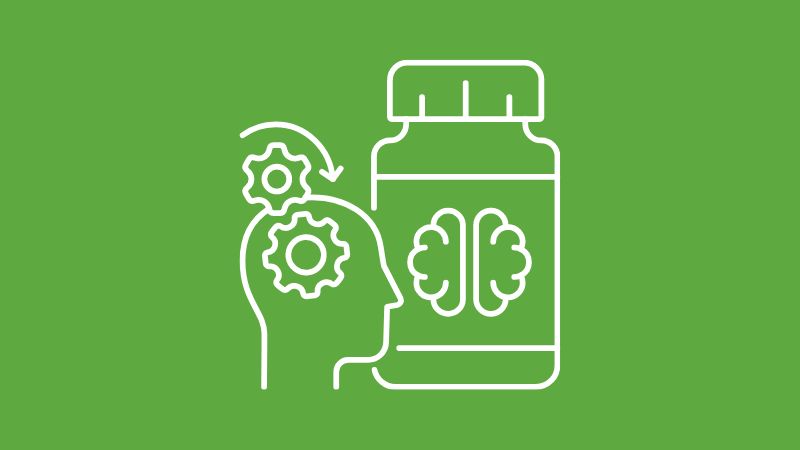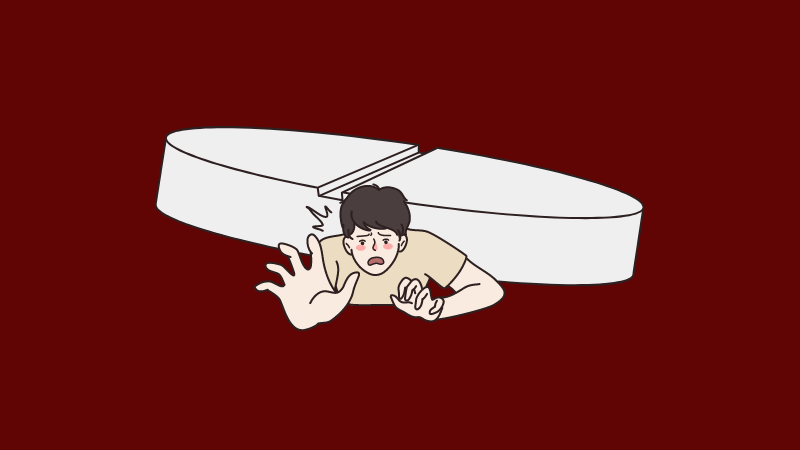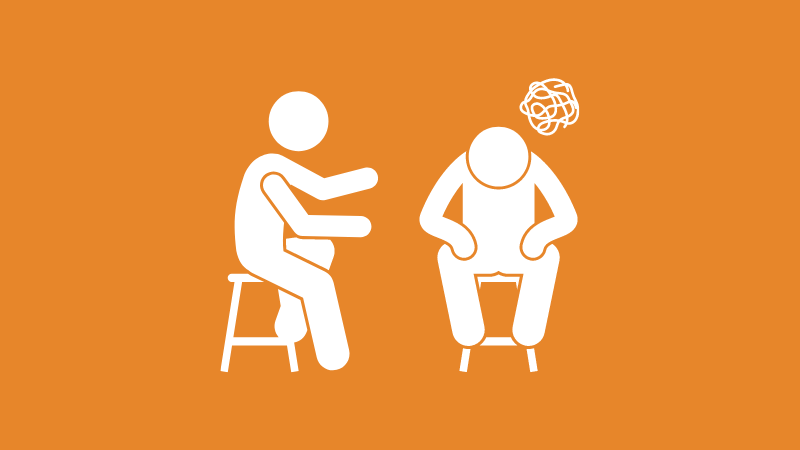Table of Contents
Affiliate link notice: As an affiliate of BetterHelp and other third-party vendors, We will receive compensation if you make a purchase using the links provided on this page. For more information, visit our disclosure page.
Last Updated on April 11, 2023 by Randy Withers, LCMHC
Are you curious about psychedelic retreats? In recent years, these unique experiences have grown increasingly popular as people search for safe and guided spaces to explore the healing and transformative powers of psychedelics.
But with so many options out there, how do you pick one that’s right for you? In this article, we’ll delve into the world of psychedelic retreats, discuss different types available, assess how to align personal goals and needs with a retreat, as well as assess safety and credibility.
So strap yourselves in and let’s start this exciting journey together!

Understanding the Different Types of Psychedelic Retreats
The world of psychedelic retreats is diverse and caters to various preferences, therapeutic goals, and cultural interests. Here are four main types of retreats you may encounter in your search:
1. Traditional Indigenous Ceremonies (e.g., Ayahuasca, Iboga)
Traditional indigenous ceremonies have been practiced for centuries in indigenous cultures to promote spiritual and healing effects. These retreats are led by experienced healers from these communities and often involve the use of powerful plant medicines like Ayahuasca or Iboga; participants engage in multiple ceremonies over several days guided by their wisdom and traditions from these cultures.
Such retreats offer an immersive experience that connects participants to ancient healing techniques as well as indigenous wisdom.
2. Psilocybin-Assisted Therapy Retreats
Psilocybin-assisted therapy retreats utilize the active ingredient in “magic mushrooms” in a therapeutic setting. Generally led by licensed therapists or facilitators, these retreats offer participants a safe and structured space to explore their inner experiences. Psilocybin has shown promising results when treating mental health conditions; thus these retreats often incorporate preparatory or integrative therapies to maximize its effects.
By combining its potential therapeutic effects with professional guidance and support, these retreats maximize its therapeutic potential.
3. Holistic Retreats Combining Psychedelics with Other Healing Modalities
Holistic retreats combine the use of psychedelics with other complementary healing modalities, such as yoga, meditation, breathwork and bodywork. These retreats provide a holistic and integrative experience by integrating various modalities for an integrated healing journey.
Holistic retreats offer multiple approaches to transformation through multiple-faceted approaches.
4. Clinical and Research-Based Retreats
Clinical and research-based retreats take place in a medical or therapeutic setting and adhere to stringent protocols and guidelines for safety and efficacy. These retreats are typically part of clinical trials or research studies investigating the therapeutic potential of psychedelics for specific mental health conditions. They are usually conducted by trained professionals, with participants closely monitored throughout their stay.
These retreats may be ideal for individuals who want to contribute to the advancement of psychedelic research and are willing to undergo a more structured, regulated experience.
These facilities provide a secure, controlled atmosphere for psychedelic exploration.
Assessing Your Personal Goals and Needs
Before embarking on any psychedelic adventure, it is important to assess your personal objectives and requirements.
1. Identify your Intentions for Seeking a Psychedelic Retreat
When seeking a psychedelic retreat, it’s essential to identify your intentions and what you hope to gain from the experience. Are you seeking healing from past traumas, exploring consciousness or deepening your spiritual practice?
Clarifying these goals will enable you to select a retreat that aligns with them and provides the right environment and support. By understanding why you are seeking this type of experience, you will find the ideal fit for your personal journey.
2. Evaluate Your Current Emotional, Mental and Physical Health Before Attending a Psychedelic Retreat
It is essential to assess your current emotional, mental and physical well-being prior to embarking on this transformational experience. Psychedelics may bring up intense feelings and experiences which should be taken seriously; thus it’s important to evaluate all these areas beforehand.
Prior to embarking on a psychedelic retreat, it’s essential that you are mentally and emotionally prepared. If you have a history of mental health conditions, consult with a qualified healthcare professional to determine if psychedelic retreats are suitable for you.
Physical wellness and fitness can also contribute to an enjoyable experience during the retreat. Evaluating your current wellbeing will enable you to choose a retreat that supports both of these factors while guaranteeing safety throughout the experience.
3. Considering the Level of Support and Guidance You Require
Different retreats provide various levels of support and guidance. Some may provide one-on-one therapy sessions, while others host group discussions or offer integration support after the retreat.
When seeking support and guidance for psychedelics, consider your individual needs and comfort level. If you are new to the experience or have limited knowledge, a retreat that provides more structured assistance may be more suitable. Conversely, if you have some previous experience and desire a more self-guided journey, retreats with less guidance may be suitable.
Assessing how much support and guidance is necessary will enable you to select a retreat that meets your individual requirements.
Evaluating Psychedelic Retreat’s Safety and Credibility
The safety and credibility of the retreat center and its facilitators should be among your top priorities when choosing a psychedelic retreat. Here are some factors to take into consideration:
1. Researching a Retreat Center’s Reputation and Experience
Before booking any psychedelic retreat, it’s essential to research its reputation and experience. Read reviews from previous participants for an indication of their satisfaction, check if the center has a history of providing safe, reputable services, learn about facilitators’ credentials as well as assess the overall ethos and values.
A reliable retreat center with experienced facilitators will guarantee your safety throughout your stay.
2. Reviewing the Qualifications and Training of Facilitators and Therapists
The people guiding you through your psychedelic experience are crucial to the outcome. Ensure that the retreat’s facilitators or therapists have the appropriate training, credentials, and experience necessary to support you effectively. This may include certifications in psychedelic-assisted therapy, mental health counseling, or extensive experience with traditional plant medicine ceremonies.
3. Understanding the Retreat’s Safety Protocols and Procedures
Safety is of the utmost importance in any psychedelic retreat. Inquire about their safety protocols and procedures, such as screening processes for participants, preparation/integration support provided, and emergency procedures in place.
A reliable retreat center will have established safety measures to guarantee a secure environment for all attendees. Being informed about these measures gives you peace of mind and confidence when selecting the right retreat for you.
Final Thoughts
In conclusion, choosing a psychedelic retreat is a significant decision that requires careful consideration. By taking into account key factors such as location, reputation, safety protocols, staff qualifications, types of psychedelic therapies offered, and integration support, you can make an informed decision that aligns with your needs and preferences.
Remember to thoroughly research each retreat, read reviews from past participants, and ask questions to ensure you have a clear understanding of what to expect.
It’s important to prioritize safety and legality when considering a psychedelic retreat, as well as to ensure that you are mentally and physically prepared for the experience. Always consult with qualified healthcare professionals or mental health practitioners before embarking on a psychedelic retreat, especially if you have any pre-existing medical or mental health conditions.
Choosing a reputable and responsible psychedelic retreat can provide a supportive environment for personal growth, healing, and self-exploration. It can be a transformative and potentially life-changing experience, but it’s essential to approach it with caution and mindfulness.
Remember, psychedelics are not a magic cure-all, and individual results may vary. Integration practices, such as therapy, meditation, and journaling, can play a crucial role in integrating the insights and experiences from a psychedelic retreat into your daily life.
By carefully considering all relevant factors, doing thorough research, and prioritizing safety and integration, you can make an informed decision when choosing a psychedelic retreat that aligns with your goals and intentions. It’s always wise to approach psychedelics with respect, caution, and responsible decision-making to ensure a safe and meaningful experience.
Happy journeying!
FAQ About Psychedelic Retreats
Q1: Are psychedelics legal at psychedelic retreats?
The legal status of psychedelics varies by country, state, and municipality. Some psychedelic retreats operate in countries or states where certain psychedelics, such as psilocybin or ayahuasca, are legal, while others may operate in countries or states where they are illegal. It’s important to research the legal status of psychedelics at the specific retreat you are considering and understand the potential legal risks involved.
Q2: What types of therapies are offered at psychedelic retreats?
Psychedelic retreats may offer a variety of therapies, which can vary depending on the retreat’s philosophy and approach. Common types of therapies offered at psychedelic retreats include psychedelic-assisted therapy, integration support, individual and group therapy, mindfulness practices, bodywork, and other complementary or alternative therapies. It’s important to inquire about the specific therapies offered at a retreat and how they align with your goals and intentions.
Q3: How safe are psychedelic retreats?
Safety protocols at psychedelic retreats can vary, and it’s essential to research and inquire about the safety measures in place at the retreat you are considering. Reputable retreats will have trained and qualified staff, thorough screening processes, emergency medical plans, and clear guidelines for participant safety during psychedelic experiences.
However, it’s also important to remember that psychedelic experiences can be intense and unpredictable, and risks and potential side effects can exist. It’s crucial to approach psychedelic retreats with caution and mindfulness, and always consult with qualified healthcare professionals or mental health practitioners.
Q4: What should I bring to a psychedelic retreat?
Packing requirements may vary depending on the location and type of retreat. However, some common items to bring to a psychedelic retreat may include comfortable clothing, toiletries, a water bottle, any necessary medications or supplements, a journal, and a trusted support person’s contact information.
It’s important to review any specific packing guidelines provided by the retreat and come prepared for the specific needs and requirements of the retreat.
Q5: How do I prepare for a psychedelic retreat?
Preparing for a psychedelic retreat may involve several aspects, including physical, mental, and emotional preparation. This may include abstaining from certain medications or substances, following any dietary or fasting guidelines provided by the retreat, engaging in mindfulness practices, setting intentions for the experience, and discussing any pre-existing medical or mental health conditions with qualified healthcare professionals.
It’s important to thoroughly review and follow the preparation guidelines provided by the retreat to ensure a safe and meaningful experience.
Please note that these FAQs are general in nature and may not cover all the specific questions or concerns you may have. It’s always recommended to thoroughly research and inquire about the specific psychedelic retreat you are considering and consult with qualified professionals for personalized advice.
Online Resources
Retreat Guru is a comprehensive online platform that provides a wide range of retreats, including psychedelic retreats, from various locations around the world. They offer detailed information on retreat centers, facilitators, and programs, allowing users to search and compare different options based on their preferences and needs.
Psychedelic Science is a nonprofit organization that promotes the scientific study of psychedelics and their therapeutic potential. They offer a comprehensive directory of psychedelic retreats, workshops, and training programs, along with educational resources and information about ongoing research and developments in the field.
Erowid is a well-known online resource for information about psychoactive substances, including psychedelics. They provide an extensive database of information on various psychedelics, including their effects, risks, and cultural context. They also have a section dedicated to retreats and workshops, offering a curated list of retreats and related resources.
The Third Wave is an online platform that provides education, resources, and community support for individuals interested in responsible and intentional use of psychedelics. They offer a directory of psychedelic retreats and training programs, along with articles, guides, and podcasts that cover various aspects of psychedelic experiences and integration.
Psychedelic Science.org is an online publication that covers news, research, and culture related to psychedelics. They provide a directory of psychedelic retreats, along with articles, reviews, and interviews related to the topic. They also offer a wealth of information about psychedelics, including their history, effects, and therapeutic potential.
Please note that while these online resources may provide valuable information about psychedelic retreats, it’s important to thoroughly research and verify the credibility and safety of any retreat or program before making any commitments. It’s recommended to consult with qualified healthcare professionals or mental health practitioners for personalized advice and guidance.








